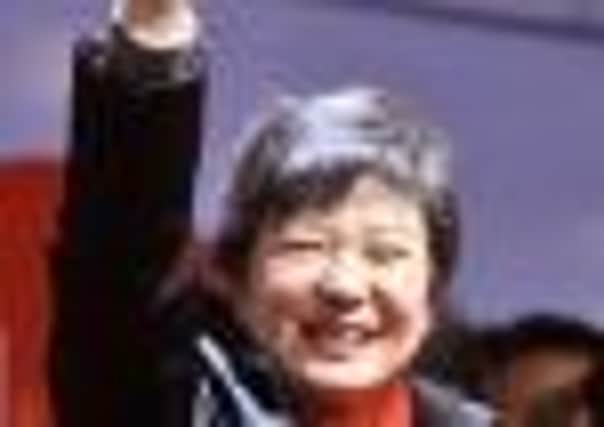World waits to see if Park can ease Korea tension


Pyongyang, Washington, Beijing and Tokyo are all watching to see if Park Geun-hye, the daughter of a staunchly anti-Communist dictator, pursues an ambitious engagement policy meant to ease five years of animosity on the divided peninsula or if she sticks with the tough stance of her fellow conservative predecessor, Lee Myung-bak.
Ms Park’s decision is important because it will likely set the tone of the larger diplomatic approach that Washington and others take in stalled efforts to persuade North Korea to give up its nuclear weapons ambitions.
Advertisement
Hide AdAdvertisement
Hide AdAs she takes office, Ms Park will be mindful that many South Koreans are frustrated at the state of inter-Korean relations after the Lee government’s five-year rule, which saw two nuclear tests, three long-range rocket launches and attacks blamed on North Korea that killed 50 South Koreans in 2010.
Her policy calls for strong defence but also for efforts to build trust through aid shipments, reconciliation talks and the resumption of some large-scale economic initiatives as progress occurs on the nuclear issue.
“The overall policy direction on North Korea among the US, Japan and South Korea will be hers to decide,” said Victor Cha, a former senior Asia adviser to President George W. Bush. “If Park Geun-hye wants to contain, the US will support that. But if, months down the road, [she]wants to engage, then the US will go along with that too. “
Engagement by Ms Park would provide a sharp contrast with the rule of her father, Park Chung-hee, whose antipathy toward Pyongyang during his 18-year rule in the 1960s and 1970s prompted a failed attack on the Blue House in Seoul by 31 North Korean commandos in 1968. In 1974, Mr Park’s wife was shot and killed by a Japan-born Korean claiming he was acting on assassination orders from North Korea’s then leader, Kim Il-sung.
Critics say Ms Park’s North Korea policy lacks specifics. They also question how far she can go given her conservative base’s strong anti-Pyongyang sentiments.
But Ms Park has previously confounded ideological expectations. She travelled to Pyongyang in 2002 and held private talks with the late Kim Jong- il, and her gifts to him are showcased in a museum of gifts to the North Korean leaders. During the often contentious presidential campaign, she responded to liberal criticism by reaching out to the families of victims of her father’s dictatorship. She said in her 2007 autobiography that she visited Pyongyang because she thought her painful experiences with the North made her “the one who could resolve South-North relations better than anyone else”.
Before the election, Pyong- yang’s state media repeatedly questioned the sincerity of Ms Park’s engagement overture. Since the election, however, although regular criticism of Mr Lee as “human scum” continues, the North’s official news agency hasn’t mentioned Ms Park by name, though her political party is still condemned.
She warned after the recent nuclear test that North Korea faces international isolation, economic difficulties and, eventually, a collapse if it continues to build its atomic programme. She also pressed Pyongyang to respond to her overtures.
“We can’t achieve trust with only one side’s efforts. Isn’t there a saying that ‘we need both hands to make a clapping sound?”’ she said.